
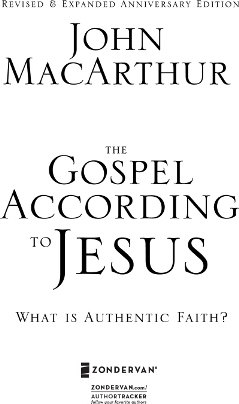
ZONDERVAN
The Gospel According to Jesus
Copyright 1988, 1993, 2008 by John F. MacArthur Jr.
All rights reserved under International and Pan-American Copyright Conventions. By payment of the required fees, you have been granted the non-exclusive, non-transferable right to access and read the text of this e-book on-screen. No part of this text may be reproduced, transmitted, down-loaded, decompiled, reverse engineered, or stored in or introduced into any information storage and retrieval system, in any form or by any means, whether electronic or mechanical, now known or hereinafter invented, without the express written permission of Zondervan.
ePub Edition January 2009 ISBN: 978-0-310-31486-8
Requests for information should be addressed to:
Zondervan, Grand Rapids, Michigan 49530
Library of Congress Cataloging-in-Publication Data
MacArthur, John, 1939
The Gospel according to Jesus : what is authentic faith? / John F. MacArthur.Rev. and
expanded anniversary ed.
p. cm.
Includes bibliographical references
ISBN-13: 978-0-310-28729-2
1. Jesus ChristPerson and offices. 2. Christian life. I. Title.
BT203.M25 2008
230dc22
2008009417
All Scripture quotations in this book, except those noted otherwise, are taken from the New AmericanStandard Bible, copyright 1960, 1962, 1963, 1968, 1971, 1972, 1973, 1975, 1977 by The Lockman Foundation. Used by permission.
Quotations marked KJV are from the King James Version.
Internet addresses (websites, blogs, etc.) and telephone numbers printed in this book are offered as a resource to you. These are not intended in any way to be or imply an endorsement on the part of Zondervan, nor do we vouch for the content of these sites and numbers for the life of this book.
All rights reserved. No part of this publication may be reproduced, stored in a retrieval system, or transmitted in any form or by any means electronic, mechanical, photocopy, recording, or any other except for brief quotations in printed reviews, without the prior permission of the publisher.
Published in association with the literary agency of Wolgemuth & Associates, Inc.
__________________________________________________________________________
08 09 10 11 12 13 14 15 16  23 22 21 20 19 18 17 16 15 14 13 12 11 10 9 8 7 6 5 4 3 2 1
23 22 21 20 19 18 17 16 15 14 13 12 11 10 9 8 7 6 5 4 3 2 1
To my beloved Patricia, who personifies faithfulness. Her love and devotion to me have been my greatest earthly delight since the earliest years of my ministry. When she has had to relinquish me because of my pastoral duties or settle for a distracted husband because of endless writing projects and sermon preparation, she has borne those trials with exemplary grace and patience. For every grief I have ever caused her, she has given me a thousand blessings in return not the least of which is a wonderful home and family that are held together and adorned with her loving attention.
Her worth is far above jewels.
The heart of her husband trusts in her,
And he will have no lack of gain.
She does him good and not evil
All the days of her life.
Proverbs 31:10 12
Contents
The grace of God has appeared, bringing salvation to all men, instructingus to deny ungodliness and worldly desires and to live sensibly, righteouslyand godly in the present age. (Titus 2:11 12)
Thirty years ago (in January of 1978) I began preaching through the gospel of Matthew verse by verse. That series lasted seven and a half years, comprising some 226 sermons and Grace Community Church was dramatically changed in the process. The Sermon on the Mount was especially pivotal. By the time we finished Matthew 7, our congregations collective devotion to the authority and the seriousness of Gods Word was almost palpable. The whole congregation, it seemed, was infused with new vitality and an unshakable enthusiasm for the truth. Thankfully, nearly thirty years later, that spirit has still not diminished.
What I learned from those years of study in Matthew also shaped the course of my subsequent ministry. Obviously, Matthew helped frame and clarify my understanding of many practical issues, such as prayer, the Christian character, and what it means to follow Christ. (The books I have written on the Lords Prayer, the Beatitudes, the crucifixion of Christ, and the twelve disciples all had their genesis in that series.) More significantly, however, those years in Matthew brought my doctrinal convictions into sharp focus and amplified several truths in my heart and mind that continue to be the backbone of everything I preach starting, of course, with the gospel message itself.
Frankly, when I began preaching through Matthew, I did not anticipate that it would be doctrinally taxing. I undertook that series just after completing a lengthy series on 1 Corinthians. I went to Matthew thinking the historical and narrative approach of the gospel account would provide a break for our congregation from the more didactic and doctrinal style of the Pauline Epistles. Instead, Matthew took us to an even more advanced study of the gospel.
As a matter of fact, practically every major theological topic comes up at one point or another in Matthew. All the sermons and discourses of Jesus recorded by Matthew are rich with doctrinal truth. And vital truth about the doctrine of salvation permeates the entire book, starting with chapter 1, whose key verse is a message from the angel of the Lord to Joseph: You shall call His name Jesus, for it is He who will save His people from their sins (Matt. 1:21). So that series in Matthew ultimately took us through a rich, seven-year-long study of biblical soteriology (the doctrine of salvation).
What grabbed my attention from the start was how different Jesus evangelistic strategy was from all the popular approaches of the past two or three generations. Modern and postmodern evangelicalism has aimed at making the gospel sound as easy and appealing as possible. Jesus evangelistic approach was exactly the opposite. He responded to peoples queries about how to gain eternal life by making salvation sound well-nigh impossible (Mark 10:17 26) because for fallen sinners who are trying to save themselves, it is impossible (v. 27).
A few years after finishing that series in Matthew, I wrote this book to distill my observations about how Jesus proclaimed His own gospel and to take a hard look at the truths He included in the gospel message.
I knew the book would be controversial, of course, because I wrote it partly as a response to an already-existing controversy. But I did not anticipate what a large and far-reaching debate it would spark. For the next couple of years, the subjects dealt with in this book seemed to dominate the evangelical discussion and then to a lesser degree, the debate has continued ever since. Over the past year or two, I have seen signs that some of the same issues covered in this book could very well become major matters of discussion especially as the emerging church movement continues to propose scaled-back redefinitions of what it means to believe in Christ and to be a Christian.
As the pressure mounts today to contextualize biblical truth by taming the gospel and toning it down for a self-centered culture, no one should imagine that this reflects some fresh, new, wonderful, progressive insight. It is just a new post modernized version of the no-lordship gospel. (Only this time there is no attempt to defend it from Scripture.)
Next page
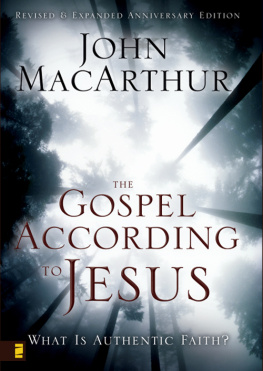
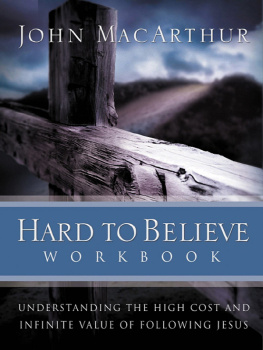
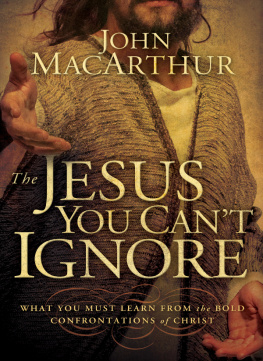
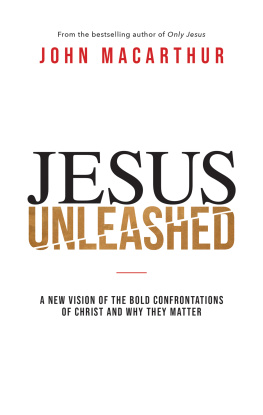

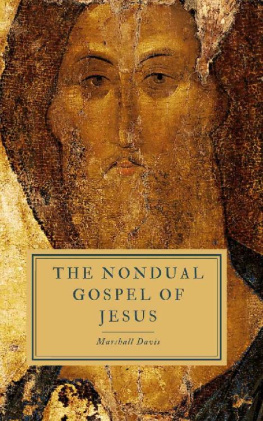
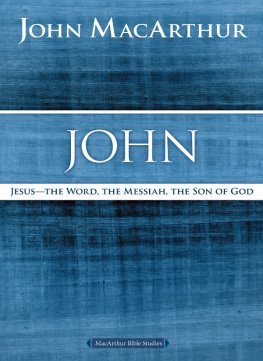
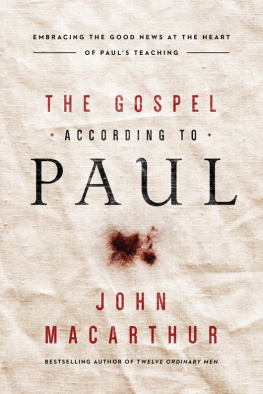
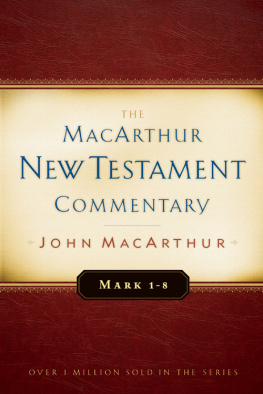
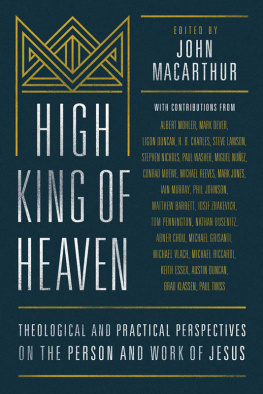
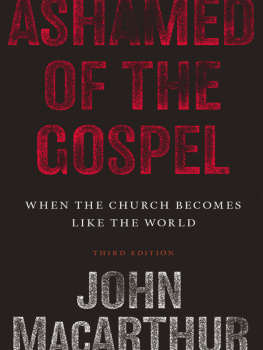
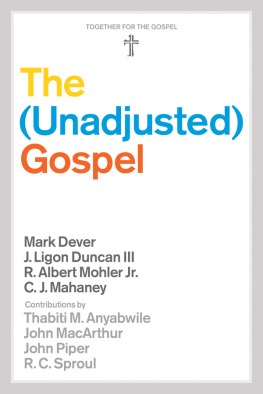
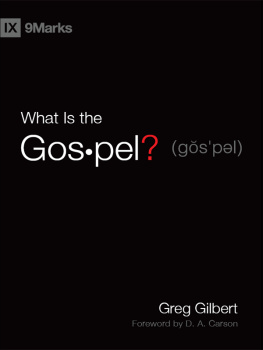


 23 22 21 20 19 18 17 16 15 14 13 12 11 10 9 8 7 6 5 4 3 2 1
23 22 21 20 19 18 17 16 15 14 13 12 11 10 9 8 7 6 5 4 3 2 1